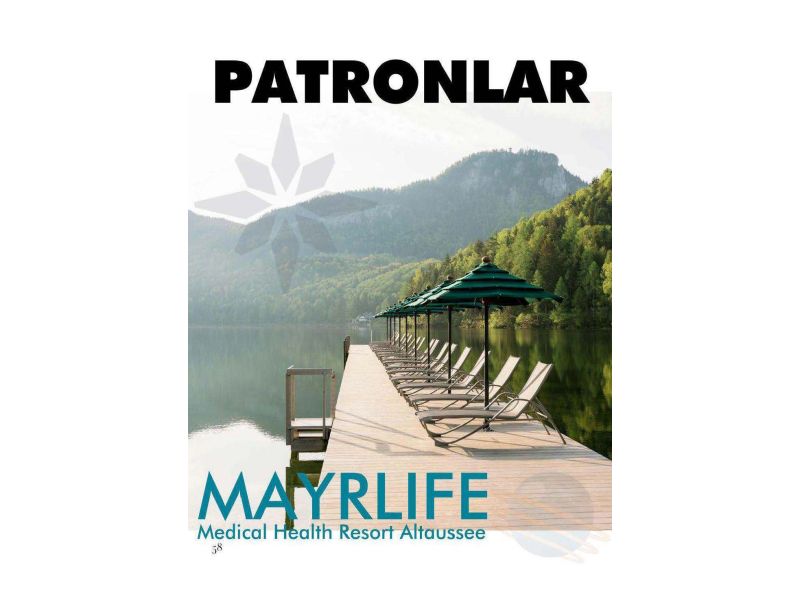Epigenetics and Nutrition
Research into the relationship between nutrition and epigenetics shows that our health and predisposition to certain diseases are not determined solely by our genes. There are many other factors influencing our health across generations, particularly nutrition. We will show you how you can consciously take your health into your own hands.

Epigenetics Definition and Distinction from Genetics
"You know it's all in the genes!" - You've probably heard this phrase, especially when it comes to body weight, right? But the truth is, that’s just one side of the coin, inadequately and incompletely reflecting all the factors influencing our health. Researchers have only arrived at this conclusion in recent years. Previously, the strict doctrine was that genes, or more precisely, the genotype, determined the phenotype, i.e., the physical appearance of an organism.
It's now clear that this approach in isolation is no longer tenable. There are increasing numbers of cases where we see traits that have been inherited and that are not simply due to the base DNA sequence. Evidently, many other factors, not genetic but rather epigenetic, can indeed be influenced by us.
But what is epigenetics, and how may we understand the difference between genetics and epigenetics? While genetics is simply described as the science of heredity, epigenetics literally means "above genetics" and refers to inheritable traits not coded by the DNA (abbreviation for deoxyribonucleic acid).
DDr. Johannes Huber, a theologian and gynecologist who has studied epigenetics extensively, describes the connection as follows: "Genetics refers to the information that the cell gets through the base pairs and their sequence. However, this thread of life may actually be differently electrically charged, which also changes the formatting, i.e., the folding of the base pairs. This, in turn, changes the gene's activity. External factors may influence this folding, which then affects gene reading. That's why the configuration of the genes is changeable."
In short, it becomes clear that we have much more control over our health than previously realized. It is influenced daily by our actions, with the most significant influencing factor being our diet. "What and how we eat greatly affects our epigenetics. But also exercise, severe emotional stress, and psychological trauma play a major role. During pregnancy, the lifestyle of the mother is likewise of great importance," explains DDr. Huber, adding, "The DNA of the child in the womb is like plasticine, on which the life of the mother has an effect and shapes the child's DNA epigenetically."

Influence Epigenetics Through Nutrition: Less is More
"What can be reliably said is that calorie reduction has a very positive effect on our epigenetics and consequently on our health," states the physician. Of course, the type of food and the composition of the diet matter in epigenetic nutrition. However, the most important thing is "to eat in moderation, especially in the second half of life. Calorie restriction has a very favorable influence on epigenetics."
This is one of the reasons why a MAYRLIFE therapy program has such a positive effect on health, since a calorie-restricted diet is a daily part of every MAYRLIFE program. This is primarily done to relieve and cleanse the digestive system. Additionally, the meal times are arranged so that an early dinner leads guests automatically into intermittent fasting mode until breakfast.
That said, the way we live our lives has a decisive impact, not only on ourselves but also on the lives of our children. But why is our lifestyle inherited by our children? DDr. Huber explains: "This is a fundamental process that nature does to better prepare the child for the circumstances the mother has already experienced.
Epigenetics in pregnancy is still a completely new field of knowledge and needs further research. However, children can already influence their own epigenetics through a healthy lifestyle, so that when they later have children themselves, they can also have a favorable impact."
Epigenetics and the Gut Microbiome are Interconnected
A healthy gut is the root of all health" – This was already recognized by the most famous doctor of antiquity, Hippocrates, who was born around 460 BC on Kos in Greece. Hundreds of years later, Dr. Franz Xaver Mayr (1875-1965) picked up right where Hippocrates had left off. For example, he recognized that calorie restriction or a fasting cure not only improved the form, position, and function of the digestive system but also had a positive effect on the overall health of a person. He thus laid the groundwork for the modern Mayr method, as practiced today here at MAYRLIFE.

The microbiome, with its several trillion bacteria, lines the inside of the gut and is significantly influenced by our diet. It has many important tasks:
- Immune defense: With its 300 to 500 square meters, the intestinal mucosa represents the largest susceptible surface for pathogens and pollutants from the environment. Contact with harmful intruders activates B lymphocytes, which in turn strengthen other mucosal areas in the body (mouth-nose-throat area, bronchi, and urogenital tract).
- Synthesis of vitamins (thiamin, riboflavin, pyridoxine, B12, K) and essential amino acids
- Promotion of digestion
- Fermentation of dietary fiber
- Detoxification
- And much more – the gut flora may, for example, influence epigenetics
"Breakfast like an emperor, lunch like a king, and dinner like a pauper. This not only supports your digestive system but also your body's own recycling processes."
The connection between the microbiome and epigenetics is now known and becoming increasingly researched. Gut bacteria can release short-chain substances – small molecules – that are amongst the epigenetic drugs. They influence the electrical charge of our genome. "Here, a completely new approach is to be expected in the coming years," DDr. Huber points out.
A healthy gut microbiome depends not only on our diet but also on whether or how we live in our natural rhythm. "Our body likes routine. The things it has become accustomed to, it wants to maintain in precisely that rhythm," explains DDr. Huber. The science behind this is called chronobiology. This field studies biological rhythms and their effects on humans. It shows that a biorhythm with regulated times for food intake, exercise, and sleep has a very positive impact on our health.
DDr. Huber concludes with an example: "We now know, very precisely, that shift workers have a significantly increased risk of breast cancer. That said, living in our natural rhythm is of immense importance for our overall health."
Take Your Health into Your Own Hands
Even though scientific findings pertaining to epigenetics and how they are connected to our diet are still quite young, they do illustrate how much our health depends on ourselves. Through our daily decisions, whether or not we get exercise and how, what we eat in what form and at what time, and also with what inner attitude we go through life, we are essentially forging our own health futures.
References
- Merkel Olaf, Imago Hominis (2003), Von der Genetik zur Epigenetik; 10(3): 151-155
- o. V., o. D., Epigenetik, Abfrage vom 5.8.2021, 13:26 Uhr
- o. V., o. D., Bedeutung des Mikrobioms, Abfrage vom 5.8.2021, 18:12 Uhr
- Rudolf Müller Eva, 28.9.2017, Darmflora, Abfrage vom 5.8.2021, 16:46 Uhr
- Stossier Harald, Stossier Georg, 2018, Moderne Mayr-Medizin & das VIVAMAYR Prinzip / Du bist, was du verdaust, 1. Auflage, Verlagshaus der Ärzte, Wien
Awarded 'Best Medical Spa Worldwide'

World Luxury Spa Award 2023
World’s Best Luxury Medical Spa

Seven Stars Luxury Hospitality and Lifestyle Awards 2022
Best Medical Wellness & Longevity Resort

Condé Nast Readers’ Choice Awards 2022
Best Destination Spa

European Health & Spa Award 2024
Best Medical Resort

Haute Grandeur Global Awards 2024
Best Medical Spa in Europe


